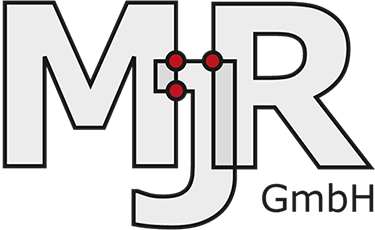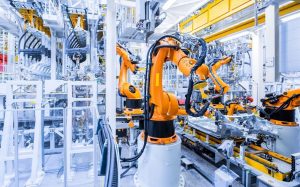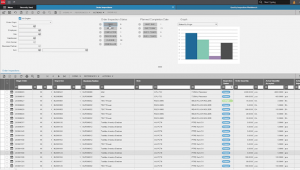Inhalt

Marcel Kosel
Sales Manager
Your partner for ERP and technology.
Developments in the manufacturing industry
We see constant change when we look at the manufacturing industry over the years since the beginning of industrialization. The historical development of manufacturing goes back a long way and is closely linked to human progress and technological innovation. The roots of manufacturing can be traced back to ancient times, when craftsmen and artisans made products by hand. At that time, simple tools and craftsmanship dominated the production landscape. With the advent of the industrial revolution in the 18th and 19th centuries, manufacturing methods began to change fundamentally.
The introduction of steam engines, mechanical looms and other technological innovations marked the transition from manual production to mechanical production. The factory emerged as the central facility for industrial production, which significantly increased production capacity. Mass production became a central element, driven by the visions of pioneers such as Henry Ford, who introduced assembly line production and standardized production processes.
In the middle of the 20th century, manufacturing underwent further revolutions, including the introduction of computer-controlled machines and the automation of production processes. As information technology progressed, the first ERP systems were developed to optimize resource planning in companies. These milestones had a lasting impact on the manufacturing industry and paved the way for modern, high-tech manufacturing, in which ERP systems play a crucial role in the integration of data and processes.
Changing initial situations constantly bring new challenges, from increased demand to complex supply chains. In this dynamic environment, efficient processes and rethinking are crucial. This is where Enterprise Resource Planning (ERP) systems come into play and can revolutionize manufacturing. We shed light on how the integration of ERP systems in the manufacturing industry increases efficiency and enables smooth communication between man and machine.
Manufacturing industry in transition: The role of ERP systems
The manufacturing industry is undergoing a profound transformation, driven by technological advances and changing market conditions. ERP systems play a central role by enabling the integration of data and processes. These systems provide a comprehensive view of the entire manufacturing chain, from procurement to delivery. By using ERP systems, companies can proactively meet the challenges of the manufacturing industry and strengthen their competitiveness.
Increased efficiency through automation and data integration
Optimizing production requires a seamless flow of information between different departments and machines. ERP systems enable workflows to be automated and data to be integrated efficiently. This leads to faster production cycles, reduced operating costs and an overall increase in efficiency. Machines can access data directly from the ERP system to receive real-time information and adjust their operation accordingly.
Human-machine interaction: the future of manufacturing
The ongoing development of artificial intelligence (AI) and machine learning is enabling deeper interaction between humans and machines. ERP systems act as a link by allowing human decisions to be based on sound data. Employees can communicate with machines via the ERP platform to make adjustments, optimize production plans and respond to changing market demands. This seamless human-machine interaction is crucial for flexibility in the modern manufacturing landscape.
Supply chain management: transparency and resilience through ERP
In the manufacturing industry, a well-coordinated supply chain is crucial. ERP systems provide a comprehensive view of the supply chain, from the procurement of raw materials to the delivery of the finished product. Real-time data allows companies to identify bottlenecks, optimize inventory levels and shorten delivery times. This not only contributes to efficiency, but also strengthens resilience to unforeseen events such as delivery failures or production disruptions.
Challenges and opportunities: the implementation of ERP systems in production
The introduction of ERP systems in the manufacturing industry presents challenges, but also immense opportunities. Training employees to use the new systems effectively and integrating them with existing technologies requires time and resources. On the other hand, ERP systems offer the opportunity to make data-driven decisions, increase competitiveness and actively shape the future of the manufacturing industry.
Overall, advances in ERP systems show that the manufacturing industry is entering a transformative era. The efficient integration of machines, processes and people enables companies to successfully meet the challenges of the manufacturing industry and create an agile, future-proof production environment.
Our ERP specialists will be happy to show you the possibilities with the ERP solutions Infor LN (Cloud) or Infor ERP Infor XA.
On the Infor website you can read the user report on the CloudSuite Industrial Enterprise.

Ask us your questions personally
Marcel Kosel
Sales Manager










